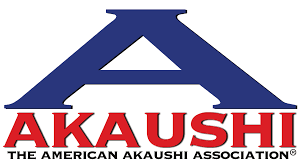The workshop is free and seating will be limited, so participants are encouraged to pre-register at http://tws.tamu.edu.
The Texas Watershed Steward program is sponsored by the Texas AgriLife Extension Service and the Texas State Soil and Water Conservation Board in coordination with the Houston-Galveston Area Council.
"The training is open to anyone interested in improving water quality in Cedar Bayou," said Jeff Koch, AgriLife Extension agent for natural resources, Harris County. “It is designed to help watershed residents improve and protect their water resources by becoming involved in local watershed protection and management activities.”
Koch said the workshop will include an overview of water quality and watershed management in Texas and will primarily focus on water quality issues relating to
Cedar Bayou, including current efforts to help improve and protect the health of this important water resource.
The training also provides a discussion of watershed systems, types and sources of water pollution, and ways to improve and protect water quality. There also will be a group discussion on community-driven watershed protection and management.
“Cedar Bayou is a critical resource for the area,” said Tyler Fitzgerald, AgriLife Extension agent for natural resources, Chambers County. “For example,
Cedar Bayou, which feeds into Galveston Bay, supports oyster production, recreational activities, commercial fishing and other economic assets. The estuaries of Cedar Bayou are considered to be a critical wildlife habitat area by the Texas Parks and Wildlife Department.”
This workshop is being held in support of ongoing watershed management activities for the Cedar Bayou watershed in Chambers, Harris, and Liberty
Counties. Since 2002, Cedar Bayou has been listed on the state list of impaired waters for elevated dioxin levels in edible tissues of marine life and was later listed for PCBs and high concentrations of bacteria.
Efforts are currently under way to reduce pollutant levels in Cedar Bayou through working with local residents and property owners to develop a watershed protection plan. More information about the plan can be found at http://www.cedarbayouwatershed.com.
“Management strategies to be included in the plan are intended to provide direction to local stakeholders and deliver educational programming such as the
Texas Watershed Steward Program,” said Justin Bower of the Houston-Galveston Area Council and watershed coordinator for the Cedar Bayou Watershed Partnership.
“Along with the training, participants receive a copy of the Texas Watershed
Steward Handbook and a certificate of completion,” said Ron Holcomb, AgriLife Extension agent for natural resources, Liberty County.
The program also offers seven continuing education units in soil and water management for certified crop advisers, seven units for professional engineers and certified planners, and seven continuing education credits for certified teachers. It also offers three general continuing education units for Texas
Department of Agriculture pesticide license holders, three for certified landscape architects and three for certified floodplain managers.
“Participating in the Texas Watershed Steward program is a great opportunity to get involved and make a difference in your watershed,” Holcomb said.
For more information and to pre-register, go to http://tws.tamu.edu or contact Galen Roberts, AgriLife Extension program coordinator at 979-862-8070, groberts@ag.tamu.edu; Koch at 254-933-5305, JWKoch@ag.tamu.edu; Fitzgerald at 409-267-8347, tsfitzgerald@ag.tamu.edu, or Holcomb at 936-336-4558, rholcomb@ag.tamu.edu.
For more information on the watershed planning efforts in the Cedar Bayou watershed, contact Bower at 713-499-6653 or Justin.Bower@h-gac.com.
The Texas Watershed Steward program is funded through a Clean Water Act §319(h) nonpoint source grant from the Texas State Soil and Water Conservation Board and the U.S. Environmental Protection Agency. 







